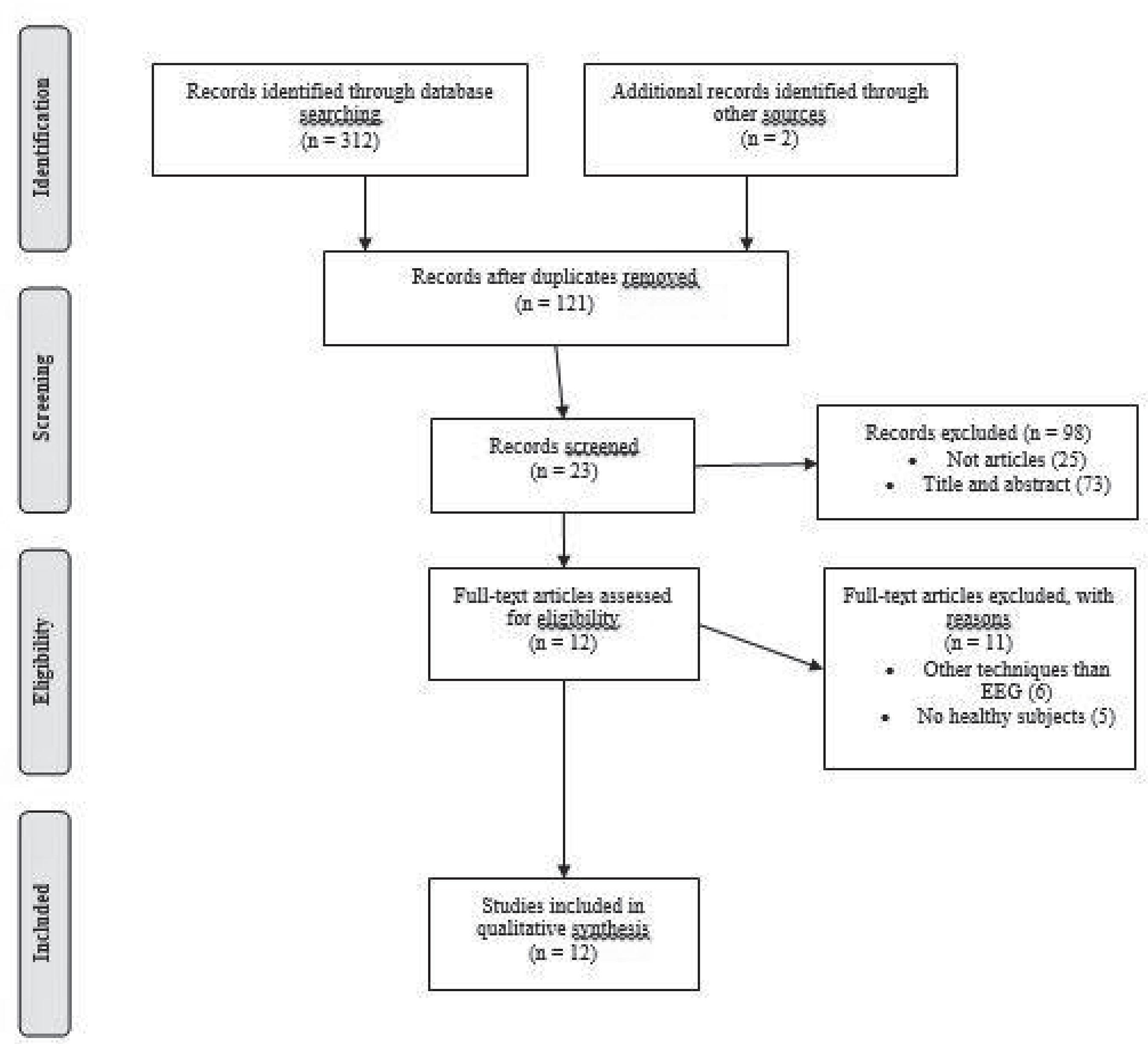Waldhauser, Lindgren, & Johansson, 2012Waldhauser, G. T., Lindgren, M., & Johansson, M. (2012). Intentional suppression can lead to a reduction of memory strength: Behavioral and electrophysiological findings. Frontiers in Psychology, 3, 401. doi: 10.3389/fpsyg.2012.00401
https://doi.org/10.3389/fpsyg.2012.00401...
|
22 healthy right-handed participants |
TNT paradigm, 30 word pairs |
More negative-going ERPs at frontal electrode sites for NT condition. |
Depue et al., 2013Depue, B., Ketz, N., Mollison, M. V., Nyhus, E., Banich, M. T., & Curran, T. (2013). ERPs and Neural oscillations during volitional suppression of memory retrieval. Journal of Cognitive Neuroscience, 25, 1624-1633. doi: 10.1162/jocn_a_00418
https://doi.org/10.1162/jocn_a_00418...
|
29 undergraduate students |
TNT paradigm, 44 face-picture pairs |
Overall increase of the parietal effect for T, as compared with NT and baseline trials. |
Streb, Mecklinger, Anderson, Johanna, & Lass-Hennemann, 2016Streb, M., Mecklinger, A., Anderson, M. C., Johanna, L. H., & Michael, T. (2016). Memory control ability modulates intrusive memories after analogue trauma. Journal of Affective Disorders, 192, 134-142. doi: 10.1016/j.jad.2015.12.032
https://doi.org/10.1016/j.jad.2015.12.03...
|
21 healthy right-handed participants |
TNT paradigm, 84 weakly related, neutrally valenced word pairs |
The NT condition showed greater negative going ERPs at fronto-central electrode sites and an N2 component between 350 and 450ms over frontal and central electrodes. |
Hellerstedt, Johansson, & Anderson, 2016Hellerstedt, R., Johansson, M., & Anderson, M. C. (2016). Tracking the intrusion of unwanted memories into awareness with event-related potentials. Neuropsychologia, 89, 510-523. doi: 10.1016/j.neuropsychologia.2016.07.008
https://doi.org/10.1016/j.neuropsycholog...
|
32 healthy right-handed participants |
TNT paradigm, 96 semantically unrelated word pairs |
A significantly greater negative slow wave (NSW) effect for intrusions compared with avoided retrievals in the 550-900ms. The LPP was attenuated during retrieval suppression. |
Chen et al., 2012Chen, C., Liu, C., Huang, R., Cheng, D., Wu, H., Xu, P., Mai, X., & Luo, Y. J. (2012). Suppression of aversive memories associates with changes in early and late stages of neurocognitive processing. Neuropsychologia, 50(12), 2839-2848. doi: 10.1016/j.neuropsychologia.2012.08.004
https://doi.org/10.1016/j.neuropsycholog...
|
20 healthy right-handed participants |
TNT paradigm, 48 face-picture pairs |
Memory suppression were associated with changes during a time window of 70-260 ms, such as P1 and N2, mainly at the right inferior frontal gyrus and occipital lobe. |
Hanslmayr et al., 2009Hanslmayr, S., Leipold, P., Pastötter, B., & Bäuml, K. H. (2009). Anticipatory signatures of voluntary memory suppression. Journal of Neuroscience, 29(9), 2742-2747. doi: 10.1523/JNEUROSCI.4703-08.2009
https://doi.org/10.1523/JNEUROSCI.4703-0...
|
24 healthy right-handed participants |
TNT paradigm, 54 neutral faces and 54 semantically unrelated words |
ERP effects were due to a decreased right frontal and left parietal positivity. Positivity in the NT condition was selectively reduced over right frontal and left parietal electrode sites. |
Mecklinger & Jäger, 2009Mecklinger, A., & Jäger, T. (2009). Episodic memory storage and retrieval: Insights from electrophysiological measures. Neuroimaging and Psychological Theories of Human Memory, 357-382. doi: 10.1093/acprof:oso/9780199217298.003.0020
https://doi.org/10.1093/acprof:oso/97801...
|
24 healthy participants |
TNT paradigm, 70 weakly related word pairs |
An early P2 component and a parietal positivity were related to retrieval attempts and a centro-parietal N2 component was associated with attempts to avoid memory retrieval. The parietal positivity was attenuated for NT trials on learned items. Stop signal N2 showed a similar centro-parietal scalp distribution as the N2 to NT trials. |
|
Bergström et al., 2009Bergström, Z. M., de Fockert, J. W., & Richardson-Klavehn, A. (2009). ERP and behavioural evidence for direct suppression of unwanted memories. NeuroImage, 48(4), 726-737.
|
21 participants in the Substitution group and 23 participants in the Suppression group |
TNT paradigm, 36 weakly related word pairs |
Only direct memory suppression reduced centro-parietal positivity in the event-related potentials (ERP) between 300 and 600ms post-stimulus. Only direct memory suppression produced later inhibitory forgetting that was predicted by an earlier negative. Thought substitution produced later non-inhibitory forgetting and had no effect on the ERP correlate of recollection. |


